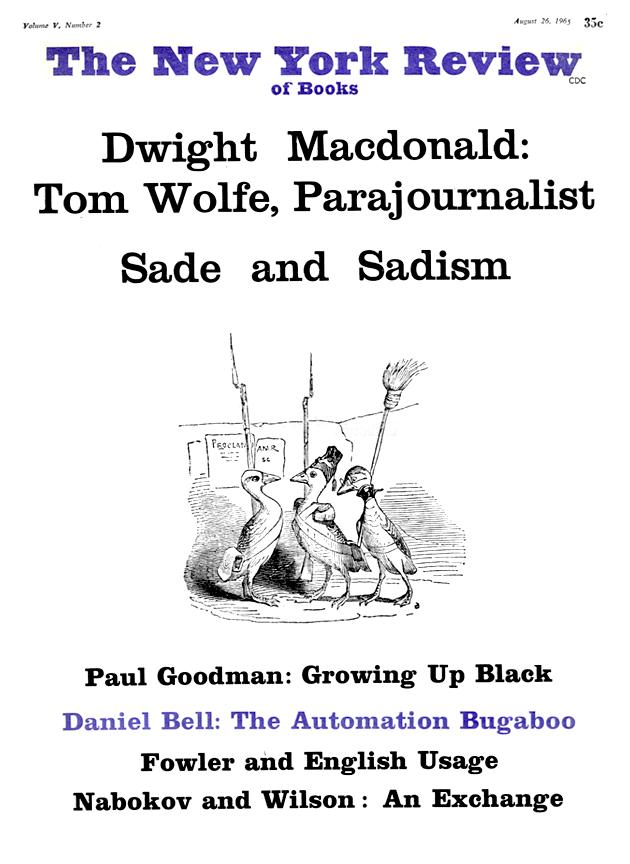In response to:
The Strange Case of Pushkin and Nabokov from the July 15, 1965 issue
To the Editors:
In his recent review of Nabokov’s work on Eugene Onegin, Edmund Wilson mentions Nabokov’s odd contention that Pushkin’s knowledge of languages, especially English, was not as extensive as it has generally been supposed to be.
Prosper Mérimée—who knew English perfectly and Russian very well, who was instrumental in introducing Russian literature to France, partially through his own translations of Turgenev and Pushkin—frequently discussed the question of Byron’s direct influence on Pushkin. Much of the discussion is found in his correspondence with Turgenev and others, but his thought on the subject is also conveniently set forth in an article entitled “Alexandre Pouchkine” published in 1868. A few sentences from that critique will show what Pushkin’s first (and contemporary) French critic saw of Byron’s influence in his work:
“L’influence de lord Byron sur Pouchkine fut de longue durée; elle a produit plusieurs ouvrages remarquables que j’hésite à nommer des imitations. […] Sauf la forme des vers et le ton général de la composition, Pouchkine n’a rien dérobé à lord Byron.” Speaking specifically of Onegin, Mérimée says: “Les premiers chants sont une imitation, mais parfaitement russifée, du Don Juan de lord Byron. […] J’ai remarqué l’imitation du Don Juan dans la première partie de l’ouvrage, publiée plusieurs années avant la seconde; elle cesse complètement dans la suite du poème.”
R. C. Dale
This Issue
August 26, 1965


